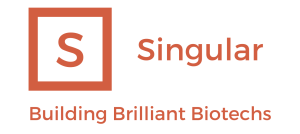Most of the time, the first contact you will have with a hiring manager will be over the phone (although this has shifted to video calls over the past few years – more on that here!).
So, what’s the best practice for a telephone interview? How can you best prepare? Isaac Smith, Talent Executive at Singular, provides the answers.
Preparation is key
In the wise words of Thomas Edison: “Good fortune is what happens when opportunity meets with planning.” Put simply, preparation is key.
But how can you prepare for an interview if you don’t know what you’re going to be asked about?
It helps to understand that, in a structured non-technical interview, the aim isn’t to ask you random, unfathomable questions. There are three main types of questions, tied into the role requirements, and most of which you can easily prepare for. Check out our article here for more information on this, plus a handful of question examples.
As well as pre-empting a few questions, you can also research the company, decipher the job spec, and do a bit of research on your interviewer (assuming you have their name). Jot down a few notes and have them to hand, so you can refer to them if needed.
The format of a telephone call will vary from company to company, so be sure to discuss this with your recruiter beforehand to help focus your preparations.
Your setup
Similar to video calls, you’ll want to make sure your setup is just right. Firstly, make sure you’re in a quiet area with a good phone signal. If you live in an area with poor phone signal, use your internet connection to help (i.e. WiFi calling) – WhatsApp is often reliable in this regard! Landlines are generally the most reliable of all so, if you have access to one, use it.
You can also have your prep notes in front of you to help answer any questions your interviewer may have, just be sure to focus on what they are saying throughout the conversation – be an active listener.
Any questions?
These initial conversations are almost always exploratory in their nature, so it’s important you use this opportunity to get a better picture on the role and company. With this in mind – don’t be afraid to ask lots of questions!
It can be useful to have a bank of 3-5 questions ready for your interviewer, and a notepad to hand to jot down their answers. This information can be handy during the later interview stages!
Try to make your questions as focussed as possible and, whatever you do, don’t ask questions that you can find the answers to yourself (i.e. public information on the company).
Talk to Singular
At Singular, we are passionate about connecting talented people to jobs and companies they love. For advice and support as you navigate the search, hiring, and onboarding process, please get in touch – we’d be pleased to help.
Join our Talent Community
Would you like to join the Singular Talent Community? Your free membership will provide unrivalled support for your career progression and growth within the biotech sector; from interview prep and application advice, to transition support and salary reviews. Become a member today.






Leave A Comment